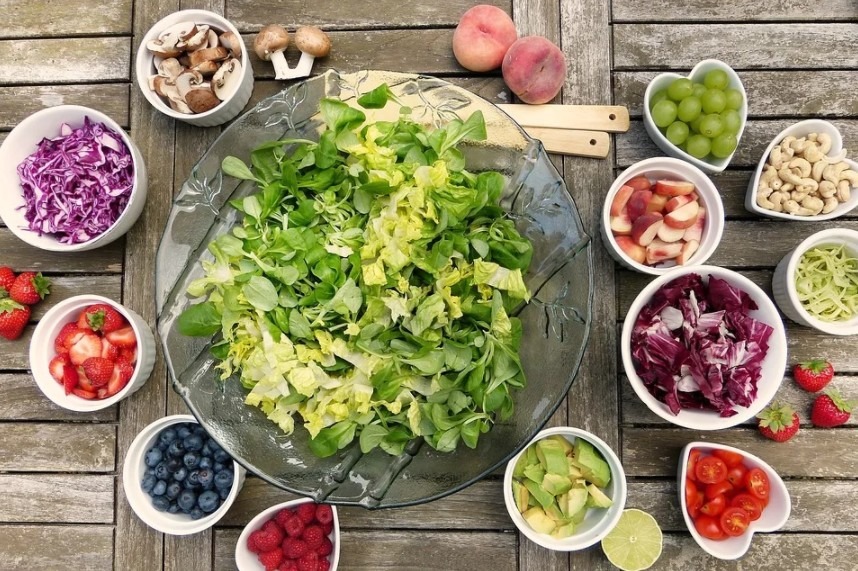Diet is fundamental for our well-being. A healthy diet helps maintain or improve our overall health and provides the body with essential nutrition. It consists mainly of fruits, vegetables, nuts, and fish. On the other hand, an unhealthy diet contains lots of processed foods, meats, and refined grains.
People generally believe that eating healthy equals expensive eating habits, but most often, that’s not the case. Choosing healthier food is not a luxury. Sometimes we just have to look at things from a different perspective. We are positive that healthy foods are not expensive, and this article explains why.
The expensive rates of some items might make you think that eating healthy is beyond your budget. But, in reality, healthy meals and snacks don’t have to be so high-priced. Making smart choices while you shop will help you eat healthy and nutritious meals without exhausting your resources.
The thing is, only some categories of food are expensive for being healthy. Consumers end up applying this to all food categories. For example, chia seeds are costly, but basic nourishing foods like lentils and vegetables are not. Most people also believe that only junk food is tastier, which is not exactly true.
There are many recipes available on the internet that are filling, healthy, easy to make, and very cheap in terms of cost. So, cooking at home will help you keep in check the ingredients that go in your food and keep the overall cost low in the long run.
Marketing Gimmicks
It is human psychology to gravitate towards things that are labeled to be good or special.
At the supermarket, certain specialized labels like gluten-free, fiber-fortified, and organic, might increase the retail cost of products. But these labels are often very gimmicky and just a marketing strategy. Sometimes sellers try to convince buyers that just because this product is marked special, it would be good. However, that is not the case.
It is proven that most marketed fiber-rich foods have little to no fiber benefits, and unless you have a diagnosed medical condition, eating gluten is alright for you. It is safe to say that you can consume a nutritious diet without worrying about extra labels. One thing you should always bear in mind is to consume whole foods and not processed ones.
Healthy foods can be bought at any grocery market or even shops. If you are going to specific health food stores with fancy displays, they will surely charge you more than regular ones. They tend to sell the organic label.
Evaluation
Measuring the relationship between health benefits and the price of food is very difficult. The USDA’s Economic Research Service (ERS) in their newly published report,Are Healthy Foods Really More Expensive? It Depends on How You Measure the Price, evaluated the cost of food in a variety of ways.
- Price per calorie
- Price per average portion
- Price per edible weight
After analyzing the factors mentioned above, there were two major finds:
- Food that is low in calories is usually expensive, such as fruits and vegetables.
- Food that is high in calories is usually cheap such as food having high fat and sugar content.
Consuming more calories is not always considered healthy. It is best to see which food provides the best quality. The edible weight and portion size of fruits and vegetables is very high. They always tend to be cheaper than high-calorie, low-nutrition foods in terms of portion.
The report summarizes what most nutritionists already know, but consumers fail to believe: healthy food does not cost more.
Benefits of Eating Healthy
People think that their yearly budget increases a fair amount when they are eating healthy. But, the daily increase is not very significant. High levels of sugar, fat, and sodium put you at an increased probability of diabetes, heart diseases, and dental problems. Eating healthy protects you from the risk of many chronic diseases; this provides long-term financial savings as well.
How to Keep Your Grocery Bill Low?
These are some tips to help you stick to your budget while getting the maximum amount of nutrition.
- Planning meals beforehand is a great tip to save money. This way, you won’t end up buying what you don’t need.
- Prioritize your grocery list according to your needs.
- Don’t be overwhelmed with labels because spending so much money on organic products might not be that beneficial.
- Buying fruits and vegetables that are in season costs lower. Try going to the farmers market and increase your knowledge online. Don’t buy the same produce all year round.
- Frozen fruits and vegetables are not as bad as they seem. Typically these are frozen right after they are picked, so they have increased nutrients.
- You don’t have to consume meat all the time to get proteins. Lentils, beans, and other plant sources that are high in protein are usually cheaper.
- Always compare healthy and unhealthy snacks, along with their portion sizes. This will help you know what is better and provides more bang for your buck.
Final Words
Most consumers think that eating healthy on a budget is not possible and, in fact, more expensive. However, there is no direct relationship between price and healthiness. Cooking at home is often cheaper than takeout if you think about it carefully. Following some essential tips and meal planning might help you save up on the total expense. Eating healthy has a lot of long term health benefits. We all want to look great including using luxury cosmetics from brands such as Cover Girl, driving a BMW or wearing expensive watches. But health is the ultimate luxury
In short, healthy foods are not expensive; it all depends on how efficiently you plan things.

